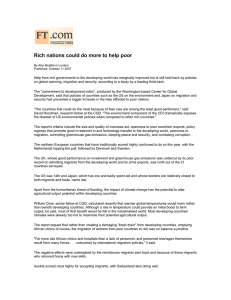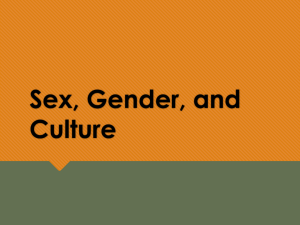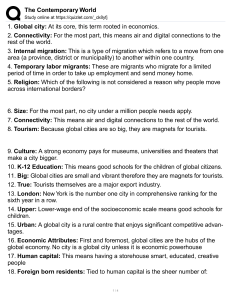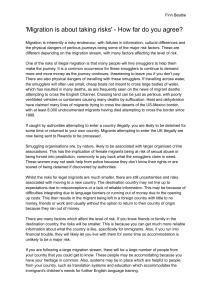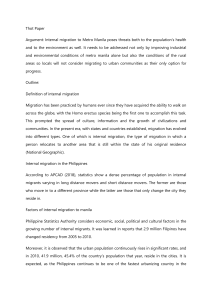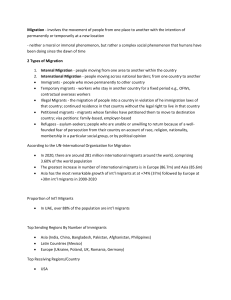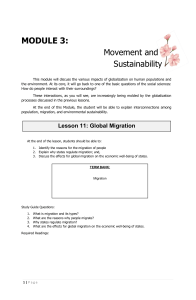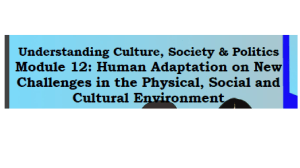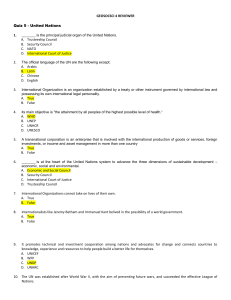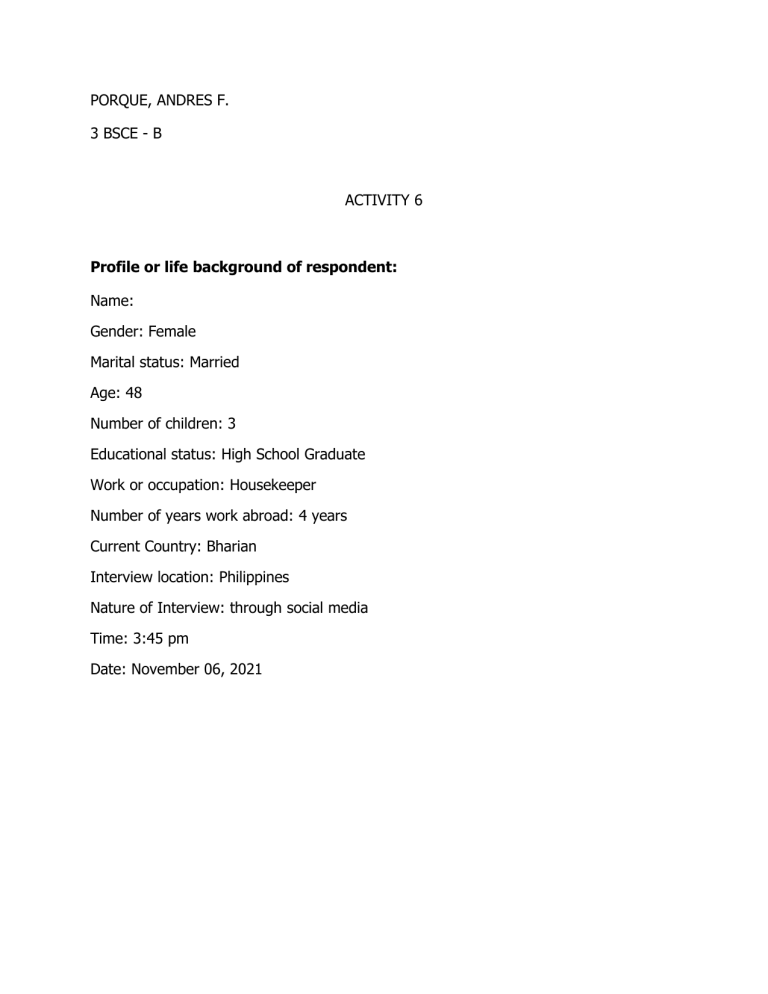
PORQUE, ANDRES F. 3 BSCE - B ACTIVITY 6 Profile or life background of respondent: Name: Gender: Female Marital status: Married Age: 48 Number of children: 3 Educational status: High School Graduate Work or occupation: Housekeeper Number of years work abroad: 4 years Current Country: Bharian Interview location: Philippines Nature of Interview: through social media Time: 3:45 pm Date: November 06, 2021 Narrative report: It is the ideal that the family be complete – dad, mom and children. But because of hard times, one or both parents come to the point where they need to find work outside of the country where pay is higher, so that that can meet the growing needs of the family. Working overseas is not for the faint-hearted. Deciding to pursue it had surely taken you an ounce of courage. Leaving away your comfort zone and living in a foreign country just to provide your family a better future is such an act of bravery. Your dreams and inspiration drive you to work hard and be dedicated especially when your guts tell you that you’re surely getting what you’re aiming for. The life of an OFW was never easy; we pack up their things and work to foreign countries and sacrifice our time as a family. We go and find a job there, so that we can earn enough money to support the daily needs and give a better future to our family here in the Philippines. We adjust to almost everything like language, their way of living, culture, customs, belief, foods and etc. In top destinations, immigrants have slightly lower employment rates than native workers, however this varies depending on skill level and origin location. While there can be short-term negative effects if there is a large inflow of migrants to a small region, if migrants are close substitutes for native workers, or if the destination economy is experiencing a downturn, extensive academic evidence shows that immigration does not harm native employment or wages. Our increasingly interconnected world is characterized by migration. It has also sparked debate in a number of countries, highlighting the necessity of comprehending global migration patterns and the economic impact that occurs when people cross international borders. The working-age population grows as a result of migration. Migrants bring skills with them and contribute to the development of human capital in receiving countries. Migrants contribute to technological advancement as well. If our societies are to debate the role of migration effectively, we must first understand these effects.
